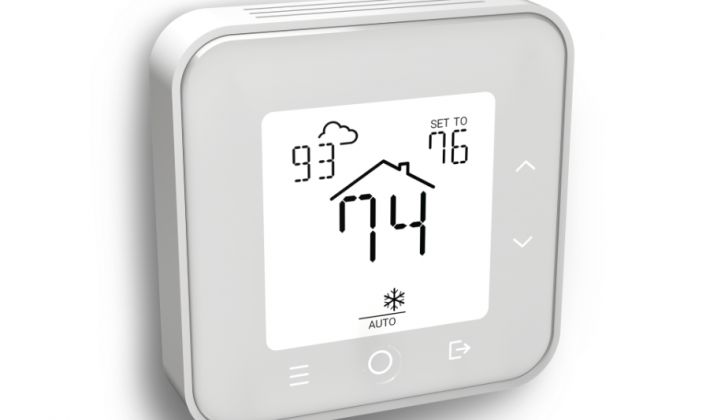EcoFactor is one of several startups with a cloud computing platform to manage and analyze data from smart thermostats and other home energy devices. But it also specializes in using that data to monitor and predict performance problems and impending failures of the air conditioners keeping houses cool.
That kind of technology could have a lot of value to the companies that make heating, air conditioning and ventilation equipment — enough to make it worth owning.
On Tuesday, HVAC giant Trane announced it has acquired EcoFactor's energy analytics software for an undisclosed sum. Trane, a brand of Ingersoll Rand, plans to integrate EcoFactor’s “unique artificial intelligence (AI) capabilities for energy efficiency and HVAC fault detection” into its existing Nexia home automation line. EcoFactor will continue to serve its existing utility customers and energy management partners under its existing Simple brand.*
EcoFactor has raised about $31 million since its 2006 founding, including a $7.1 million Series C round in 2015 and an $8 million venture round in 2012 from RockPort Capital Partners, Claremont Creek Ventures and Aster Capital, and a $10 million Series B round in 2013 that added NRG Energy to those existing investors.
The Redwood City, Calif.-based startup launched in 2007 with the promise of software that can integrate weather data with household temperature and energy-use data, and self-adjust thermostats to save energy while maintaining household comfort levels.
The company won several early pilots with utilities like Reliant Energy in Texas and Nevada’s NV Energy, where it reported significant gains in both overall efficiency and peak demand reduction due to its automated residential HVAC interventions, and also landed work with Comcast’s Xfinity home service.
EcoFactor now sells its thermostats under its own Simple brand, and serves utilities including Kansas City Power & Light, Texas utility CenterPoint, Nicor Gas in Florida and Chicago utility Com Ed.
The nature of its work differs from utility to utility, CEO Shayan Habib said in a Thursday interview.
“A utility might be using our services for demand response, or for energy efficiency only, or for an HVAC program they’re running, or all of the above. They might be using it for our thermostats or for third-party thermostats. We designed the platform to be very flexible.”
But EcoFactor, which now serves “hundreds of thousands of homes,” according to Habib, still faces much competition in the data-intensive home energy management field, primarily from the smart home offerings from giants like Nest, now part of Google and Amazon Alexa and partner ecobee.
Remote AC diagnostics a standout technology
The same can’t be said for EcoFactor’s air conditioner diagnostics capabilities, however.
“Because of our technology, and the data sets we were able to collect over the many years of working in the space, we developed the ability to do HVAC performance monitoring without any additional devices, beyond what is already in the home,” Habib said. “That became a pretty strong, unique value proposition.”
EcoFactor unveiled the technology in 2014, and has since proven in field trials that it is highly accurate in predicting the need for a service technician to make the “truck roll” to the home to maintain the AC units in question. “We’ve seen 95 percent accuracy on diagnostics,” Habib said, though he declined to disclose details on which companies it has partnered with on the trials.
EcoFactor, which has filed more than 35 patents on various methods of determining aspects of a home’s energy usage, can also detect early-stage problems with AC units, allowing them to be fixed before they linger long enough to cause larger breakdowns, he noted. This also tends to help customers save energy, since slow-building AC malfunctions often reduce their energy efficiency — “you may not notice it’s taking 20 to 30 more minutes to reach that consistent temperature in your house, but you’re paying for that.”
Big HVAC companies like Trane have been building data-driven diagnostics, fault detection and preventative maintenance into their large commercial and industrial systems for years now to optimize the operations of these expensive assets. But residential AC units, which have to compete in a consumer marketplace driven by price comparisons and contractors’ bottom lines, lack the necessary incentives to add on-board sensors or data processing capabilities.
But, “if you can just take the thermostat data, and start telling people there might be something wrong with their AC unit, or you’re starting to see degradation — that’s pretty interesting,” Habib said. “To our knowledge, we’re the only ones that have done it at scale, with the type of results we’ve seen. That’s an interesting technology for a number of people in the market.”
* A previous version of this story incorrectly stated that Trane has acquired the entirety of EcoFactor's assets. We regret the error.




